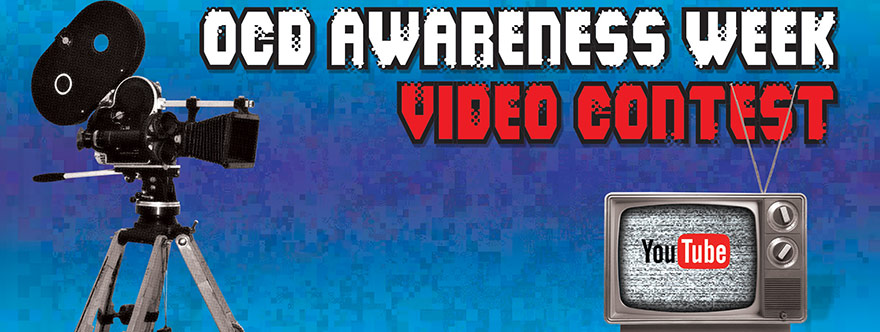View the Finalists from the 2015 OCDweek Video challenge!
The Finalists
“Your OCD is a Tool #OCDWeek” by Kaila Sekula
Imagine your brain is made up of 1000s of tiny workers, and the worst employee of them all is your OCD. This video explains the symptoms of OCD by personifying the disease. Not only does this video help create understanding of the disease, but it shows a positive role model at the end of the film who takes the steps to overcome her illness. The aim of my video is not only to help create awareness, but to change the way the conversation of mental illness is taking place. I want to make victims and overcomers proud of their journey to recovery. The hashtag #OCDiva is call to action that allows people to interact with the video and begin to change the conversation.
“What NOT To Say To Someone With OCD #OCDweek” by Hannah Zidansek WINNER!
The stigma associated with OCD has resulted in a general misunderstanding of it’s devastating realities. In the video I give a few examples of responses I have received when telling someone about my disorder. Stigma hurts and the time for Obsessive Compulsive Disorder to be understood by the masses is frankly overdue.
“The Stranger: #OCDweek 2015” by Emma Roush
In The Stranger, I act as the personification of OCD to explain the way it works, its weaknesses, and what you can do to move towards recovery, in order to inform someone who may or may not already be familiar with the realities of OCD. It ends with a revelation about how OCD affects the sufferer as an individual; it is a disorder separate from us, and does not define who we are.
“MomofOCD#OCDWeek2015” by Kelly Oakely
As a mom of a 12 yr. old son with OCD, I wanted to bring awareness not only to OCD itself, but also to the fact that it affects children as well. I gave some personal accounts of my son’s obsessions and compulsions, and how that has affected him. I shared information about what OCD is, as well the treatments available. I ended the video with a personal victory for my son.
“OCD not me #OCDweek 2015 by Nicola Stevens”
My video is a poem written and performed by me about what OCD is and my experience with it and with recovery. (Forgive my Aussie accent, I hope you can understand me!)
“Sh*t People Say To People With Mental Illness #OCDWeek” by Rachel Griffin
Get ready to meet the therapist who cancels, zones out and doesn’t take any insurance, the best friend who “is super OCD, too.. about cleaning!” the life coach who doesn’t believe in medication and recommends herbs and many more colorful characters who know “just what you need” to get over your mental illness.
I made this video to raise awareness about the stigma associated with mental illness through comedy. The stigma is extremely harmful and causes people to avoid seeking treatment and even take their own lives. The stigma also causes misconceptions and stereotypes that cause ignorant comments towards those struggling with mental illness, such as the ones in this video. The stigma affects the quality of mental health care when accessible and excellent care are so crucial. Having OCD myself, I know how damaging and shameful comments about medication being a crutch or mental illness being a character flaw are. We must change our attitude and perception of OCD and mental illness and change how they are represented in the media or people will continue to suffer in silence.
“You Know You’re OCD When…” | #OCDweek by Katlyn Hashway
My video is a satirical way to combat OCD misconceptions. I use the incorrect phrase, “You know you’re OCD,” in order to possibly attract people who don’t know what OCD is and show how ridiculous that phrase sounds. I give examples of and act out many different compulsions as a way to challenge the misconception that OCD is all about being clean and organized. I tried to include as many types of OCD as possible and in the end gave a few general examples of what it’s like to have OCD. I’m hoping the video will challenge someone’s view of OCD and see it for what it really is, a disorder that tortures and not a quirk to laugh at.

